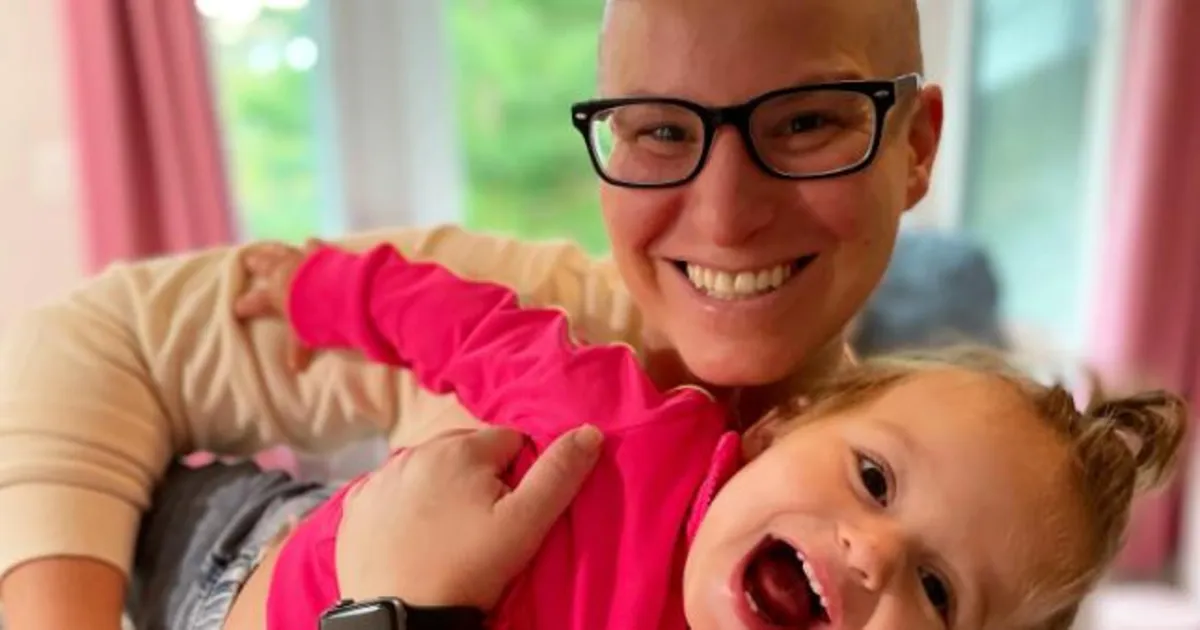
At the age of 34, Elissa Kalver discovered a lump in her breast shortly after welcoming her first child. With no family history of cancer, she initially assumed it was a cyst. However, a visit to her doctor revealed another lump in her armpit, leading to biopsies that confirmed both lumps were malignant. Further testing unveiled a more severe diagnosis: a PET scan indicated that her cancer had metastasized to her lower spine and liver. Elissa was diagnosed with HER2-positive metastatic breast cancer, a condition deemed incurable by the Cleveland Clinic.
“I was told I wasn't going to die tomorrow, but I learned there was an 80% chance I would die within five years,” Kalver shared. Her first oncologist tried to uplift her spirits, mentioning patients who had lived six or seven years post-diagnosis. For a 34-year-old, hoping to live until 40 felt surreal.
HER2-positive metastatic breast cancer is an aggressive form of breast cancer characterized by high levels of the human epidermal growth factor receptor 2 (HER2). This protein plays a crucial role in regulating cell growth and division. The prognosis for patients diagnosed at an early stage is significantly better, with a five-year survival rate of 97%. However, for patients like Kalver, whose cancer has spread, the five-year survival rate drops to 39%, according to the Cleveland Clinic.
Medical advancements have been promising, according to Dr. Shari Goldfarb, an oncologist at Memorial Sloan Kettering Cancer Center. “Over the past 10 to 15 years, we have developed new medications that target the HER2 receptor, significantly improving outcomes for women diagnosed with this aggressive subtype of cancer,” she explained. Many women are now living for years or even decades with metastatic HER2-positive breast cancer.
Treating HER2-positive metastatic breast cancer necessitates constant monitoring. As Dr. Goldfarb noted, patients like Kalver undergo scans every three to four months. If their cancer remains stable or shows improvement, they may continue their current treatment. However, if the cancer progresses, a treatment change is required. Quality of life and treatment side effects are critical considerations in devising a treatment plan.
Kalver sought treatment at the UCLA Health Jonsson Comprehensive Cancer Center, where she began with an aggressive course of chemotherapy. Over four years, she has participated in multiple clinical trials and undergone various treatments, as her oncologist, Dr. Marla Lipsyc-Sharf, detailed. A year after her diagnosis, doctors discovered cancer had spread to Kalver's brain. Initially frightened by the diagnosis, she was relieved to learn about a targeted chemotherapy that crossed the blood-brain barrier, reducing the tumors by approximately 80% without growth over the past three years.
Despite the progress, the side effects of treatment have been challenging. Kalver experienced severe nausea from one chemotherapy regimen, while another caused hair loss, which concerned her as a mother. Dr. Sharf has worked diligently to adjust Kalver's treatment whenever side effects intensified. Currently, Kalver receives chemotherapy infusions every three weeks and takes an oral medication twice daily. Although she recently required a blood transfusion due to anemia caused by the treatment, she remains optimistic. “After being on chemo for four years, I've realized we must prioritize living, not just surviving,” Kalver stated. “I feel incredibly grateful to still be on effective treatments.”
For Kalver, the possibility of spending her life on chemotherapy or other treatments looms large. Many patients with HER2-positive metastatic breast cancer may never achieve remission or see no evidence of the disease on their scans. However, she celebrated a significant milestone after completing her first course of chemotherapy by participating in the ritual of ringing the bell, symbolizing the end of treatment. “I rang it so hard that I actually broke the bell,” she reflected.
Since her diagnosis, Kalver has created her own traditions to celebrate progress. Each year, she observes what she calls a “cancerversary,” commemorating the day she received her diagnosis. For her first cancerversary, she launched “We Got This,” the first nonprofit gift registry for cancer patients. Additionally, she has authored a book, become a professional speaker, and actively educates other patients about the realities of clinical trials. This July, Kalver will celebrate her fifth cancerversary, and she is contemplating how to mark this milestone.
Outside of her advocacy work, Kalver dedicates time to her husband and their now four-year-old daughter. “Living life to the fullest is a priority,” she emphasized. “I want to live as long as I can with the best quality of life possible, making the biggest impact I can.” Kalver’s journey is a testament to resilience and the importance of hope in the face of adversity.